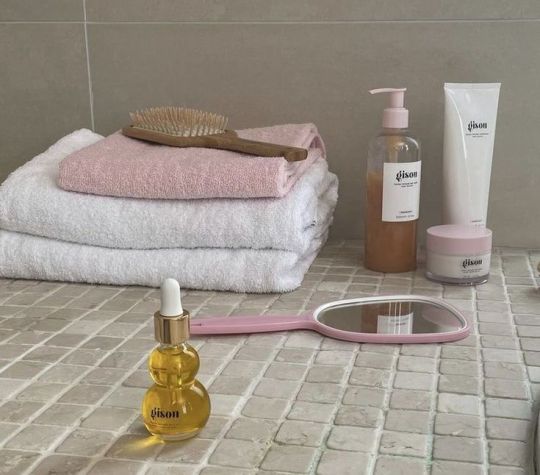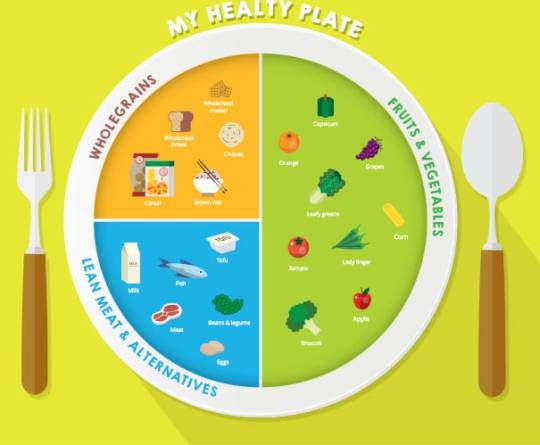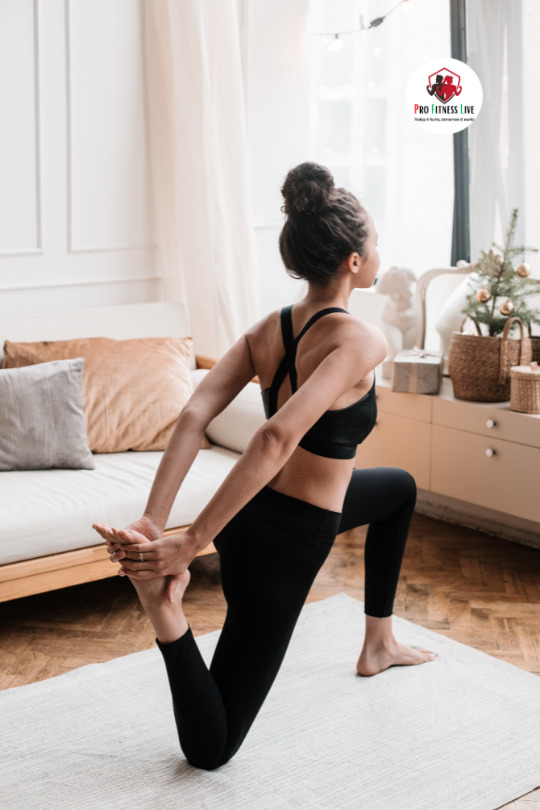#What Are 10 Tips for a Healthy Lifestyle?
Text
#10 TIPS FOR MAINTAINING A HEALTHY LIFESTYLE AND#20 health tips#Staying Healthy#Tips for Staying Healthy#10 Easy Ways to Stay Healthy#What Are 10 Tips for a Healthy Lifestyle?
0 notes
Text
Healthy Eating Tips for a Balanced Diet
Are you tired of fad diets and conflicting advice on what to eat? Are you searching for a sustainable approach to healthy eating that will nourish your body and support your well-being?
Look no further! In this article, we will delve into the realm of healthy eating and provide you with valuable tips for maintaining a balanced diet. It’s time to uncover the secrets to improved overall health and…

View On WordPress
#10 tips for a healthy lifestyle pdf#a healthy eating plan#balanced diet#eating healthy#eating healthy for beginners#health#health tips#healthy diet#healthy eating#healthy eating for beginners#healthy eating for kids#healthy eating habits#Healthy Eating Tips for a Balanced Diet#healthy food#healthy recipes#how to eat healthy#how to eat healthy for beginners#how to start eating healthy#how to start healthy eating#what i eat in a day healthy
0 notes
Text
14 Easy Ways To Beat Diet Destroyers
Check this post - reach your health goals in 2024 by beating diet destroyers. Free report for more health tips!
Diet destroyer. Reading that phrase may have you imagining fattening food like a sugary chocolate bar or a greasy cheeseburger. Learn 15 ways to beat diet destroyers, both known felons and surprising innocent looking ones.
What Is A Diet Destroyer?14 Ways To Beat 3 Top Diet DestroyersAlcohol Friends Late HoursConclusion
What Is A Diet Destroyer?
A diet destroyer is a food or drink that can…

View On WordPress
#4 diet destroyers and how to stop them#DIET#healthy#healthy lifestyle#healthy weight loss#how to avoid 4 of the most common holiday diet destroyers#how to beat diet destroyers#hydration benefits#know your diet destroyers#moderate alcohol consumption#top 10 diet destroyers#vegetables#weight loss tips#what diet makes you lose the most weight#what is diet destroyers
0 notes
Text
How I get out of a slump
Hello girlies! Welcome to another blog of mine. This topic was very spontaneous for me to write about. I'm having a writers block since last week because I have been stuck in a rut, that's my reason bts. I'm going to tell you my personal tips to get out of this state and regain your consistency on a healthy lifestyle!
My tips
Journaling: You may do this step whenever you feel it's right, but I think it's important to be concious about why are you in a rut in the first place and what you can do for you to feel better and get back stronger. You may let yourself just dump and feelings or go to Pinterest and look out for prompts.
Tidy up my space & take a shower: I truly believe that our space is a reflection of our own mind, as so I think that I reflect my state in how much I take care of my appearance and hygiene. So, this is the first thing I do to step into a state in which I feel clean and calm and able to focus on my mind after taking care of my physical space. Take your time to cleanse yourself!
Listen to high vibe music: I know my ruts happen in first place because I am in a low vibrational state and with a negative mindset. Even if it's not your case, I reccomend you to listen to songs that motivates you and empowers you up to again make an effort for yourself , rather than listening to low mood lyrics.
Revisit your goals: it's time to think again about what are the things you want to accomplish. Ask yourself what do you need to get back on track: Are there any goals that don't align with you no more or you need to change to be accomplished? What are the habits or steps you need to take?
Take it slow: We are just getting out of a rut, so it has been hard for us this days to keep track on habits and goals, even to do simple things. Girl, take it easy and at your own peace, no one is chasing you and your wellness it's first before other matters. If you need to, break down your habits or steps into small ones. One of my favorite reminders is "something is better than nothing". Examples: You don't feel with the energy to clean your room? Use a timer of 10 minutes. Can't read? Just read one page. What matters is that you are making an effort to be in a better place.
Take care of your health: First things first. Related to other points of the blog, take care fo your health and then focus on heavier effort or alongside doing small but significant actions. Health is something we start neglecting when we are in a slump (alongside keeping our space clean, our goals & habits and our mind). Make sure you are sleeping well, having a healthy diet, doing exercise, take some sun, whatever you need to do to have a healthy body.
Be consistent!: Consistency will be an important point in this one. For me, the hardest thing is taking the decision to take the first steps, after it keep them on track until you feel better. Rather than seeing it as discipline, see it as devotion. Think that "you are being devoted in taking care of yourself and giving you the best present and future", it sounds lovely, isn't it?
Health + Clean space → Reflection → Revisit your goals → Take small steps →Consistency
Let's get out of this one together! 𑄽𑄺ྀ



#clean girl#coquette#dream girl#girljournal#hyper feminine#it girl#motivation#my diary#pink aesthetic#pink blog#pink#pinterest girl#that girl#girlblogging#just girly things#girly tumblr#just girly thoughts#just girly posts#girly blog#girly aesthetic#thewizardliz#wonyoungism#dream life#dreamgirl#habits#healthyhabits#lifestyle#motivateyourself#get motivated#wellness
3K notes
·
View notes
Note
Heyy, I’m a high school senior and Im going into nursing major and now more than ever I have to step up my game, but Im struggling so much. any tips for dealing with loss of motivation and decreased productivity?
Girls in Finance project server // other posts
Hi there! It's completely understandable to feel overwhelmed as a high school senior preparing for a nursing major. Here are some tips to help you deal with a loss of motivation and boost productivity:
1. Break Down Goals:
Divide your tasks into smaller, more manageable goals. This can make the workload seem less daunting.
2. Create a Schedule:
Develop a daily or weekly schedule to allocate time for studying, relaxation, and other activities. Stick to it as much as possible.
3. Prioritize Tasks:
Identify the most important tasks and focus on them first. Tackling high-priority items can provide a sense of accomplishment.
4. Find Your Why:
Reconnect with your passion for nursing. Remind yourself why you chose this path and the positive impact it can have on your future.
6. Seek Support:
Reach out to friends, family, or mentors for support and encouragement. Talking about your challenges can provide valuable perspective.
7. Breaks and Rewards:
Schedule short breaks during study sessions. Reward yourself after completing tasks as a way to stay motivated.
8. Change Your Environment:
A change of scenery can refresh your mind. Consider studying in different places to avoid monotony.
9. Healthy Lifestyle:
Prioritize a healthy lifestyle with proper nutrition, exercise, and sufficient sleep. Physical well-being contributes to mental well-being.
10. Mindfulness and Relaxation Techniques:
Practice mindfulness or relaxation techniques to manage stress. This can include deep breathing, meditation, or yoga.
11. Celebrate Progress:
Acknowledge and celebrate your achievements, no matter how small. Positive reinforcement can help maintain motivation.
12. Set Realistic Study Goals:
Break your study sessions into focused intervals. Aim for quality study time rather than extended hours.
13. Explore Different Study Methods:
Experiment with various study techniques to find what works best for you. This might include flashcards, group study sessions, or teaching the material to someone else.
14. Remember It's Okay:
Understand that everyone faces challenges, and it's okay to struggle at times. Learn from setbacks and use them as opportunities for growth.
I hope this helps! Always feel free to reach out!
Love, Sophia
#studyblr#studygram#study tips#study notes#motivation to study#studying#100 days of productivity#study blog#studyinspo#exams
168 notes
·
View notes
Note
do you have a diet guideline and exercise routine? i'm having trouble figuring out what exactly i should be eating aside from people's vague "fiber and vegetables or whatever". And finding an exercise routine that works and i can actually make myself stick with and keep myself motivated with. Any tips/advice? thanks!
CREATING DIET & EXERCISE GUIDELINES



CREATING YOUR DIET
Determine how many calories you need daily. Your daily caloric intake depends on your age, sex, weight, height, and activity level. Some online calculators can help you with like this. However, if you’re calculating it, make sure to consider your activity levels.
Then, determine how much of what nutrients you need. If you’re lacking in one, you may want to increase the intake of that nutrient. Or, if you think you eat too much of it, you may decrease this.
The best way to find out what nutrients you need is by a calculator. However, the best form of action is to ask your GP what they advise you. Here are the formulas;
Calculate your protein intake
10-30% of total calories (for adults)
Amount of fats -
20-35% of total calories (for adults)
Consumption of carbohydrates
45-65% of total calories
Recommended water intake
1 kcal = 1 mL
Number of grams of fibre
Fiber = (kcal/1000) × 14
Limit processed foods, sodium, sugars and saturated fats as much as you can. While it is okay to eat them in moderation, they shouldn’t be a part of your daily diet.
To create healthy meals that are suited to you, consider your daily lifestyle and what times you feel hungry the most. While I cannot speak for your needs, this is typically what your meals should look like.
BREAKFAST - Breakfast should not be anything processed or fatty. It is the meal you break your 8-hour fast with, and it is the energy you use for the rest of the day.
The most ideal breakfast is one that is protein-rich, as it can help you be more productive throughout the day.
LUNCH - A lean, light but colourful meal is best suited for lunch. This shouldn’t be too filling, but enough so it can sustain your hunger until dinner.
Lunch should be a meal that has lots of veggies or fruits that can energise you as well.
DINNER - I don’t want to sound forceful, but dinner should be your healthiest meal. This is the energy that your body uses to recover and heal from the day you’ve just had.
It should be balanced with complex carbs, vegetables and proteins. However, for dinner, it is advised that you either eat early or eat small.
SNACKS - Light snacks that are filling. Avoid snacks in which you mindlessly eat them, those are the type of snacks which are most likely not good for you and you’ll end up overeating. Fruits are the best choice here.

This is a diagram I use often to measure how much food I need to eat without weighing them or counting calories. To be precise;
Vegetables or/and fruit should be ½ of your plate
Proteins should be ¼ of your plate
Grains/Carbs should be ¼ of your plate.
Adjust this to your liking, but I thought it would help you.
CREATING YOUR EXERCISE GUIDELINES
This is a process that does not happen overnight, even if you want to start running kilometres a day if you’re living a sedentary life currently, that is not possible.
Start by finding small intervals in your day to exercise, experimenting around and documenting how each one makes you feel. For now, just try to figure out what you like and form the consistency,
Then, once you get the hang of exercising regularly, you get to make your own rules. For example, your rest days, how many minutes or hours, what you do that day etc.
Exercise is just another way to fuel your body, and you only know your body and what feels good for it. So I cannot provide any further advice than this. Make sure to start slowly though.
#becoming that girl#becoming her#healthy living#healthy diet#healthy eating#wellness#health and wellness#wellness era#wellbeing#green juice girl#clean girl#that girl#pink pilates princess#pink pilates girl#wonyoungism#that girl lifestyle#that girl energy#that girl routine#diet
259 notes
·
View notes
Text
Femme Fatale Guide: Simple Tips For Healthy Eating & Exercising Habits
As someone who lost 30-40 pounds and has kept it off for over a decade, here are some practical ways to eat better and move more that still allow you to have a life and enjoy your food & workouts.
Tips for Healthy Eating Habits:
Adopt a healthier lifestyle out of self-love and improvement, not self-punishment or hatred
Shift into an abundance mindset: What foods and types of movement can you use to add/enrich your life? Focusing on what you're cutting out will only backfire
Prioritize produce: Find fruits and vegetables you love (a decent variety, around 5-10 options, is a good start)
Focus your meals on plant foods: While you don't need to cut 100% of animal foods out of your diet, making at least half of your plate fruits, vegetables, potatoes, or beans will help fill you up and support your vitamin requirements
Research & experiment until you find a rotation of healthy meals you love: Make your healthy eating routine as mindless and straightforward as possible. Once you find a handful of healthful breakfast, lunch, dinner, and snack options you enjoy, it becomes infinitely easier and more enjoyable to stick to a healthier lifestyle
Cook 80-90% of your meals at home. Know what's in your food. Control the amount of any added oil or sweetener you incorporate into any dish
Decide on at least 2 sweet and 2 savory healthy snack options you can always have on hand to support hunger or a craving throughout the day (mine are fruit bowls, a small bowl of oatmeal [with or without a few almonds], plain popcorn, carrots & hummus, and frozen edamame)
Have fun tea, coffee, and water options available: Always eat if you're truly hungry. But, for the times you're bored or stressed, having a vanilla or cinnamon tea, a cup of cold brew, or a lemon/fruit-infused water can satisfy your desire for some palette simulation
Be mindful of potential vitamin deficiencies: Your hair, skin, digestion, mental health, and energy can easily be on the rocks due to a vitamin deficiency. Get your levels checked to every year or two to ensure you're in optimal health. As a vegan who lives in a seasonal climate, I take B12 and vitamin D daily to keep up with these nutrient requirements
Allow yourself a weekly indulgence and splurge on special occasions. Prioritizing your health, not deprivation, is essential to make your life high-quality and worth living
Tips to Make Exercise More Effortless & Enjoyable:
Create 2-3, 60-120 minute (1-2 hour) playlists with different upbeat, EDM, or dance party vibes: Use these playlists to set the tone for a long walk or a gym workout
Keep a "Workout Bank" on your Youtube favorites list: Curate a handful of 10-30 minute pilates, strength training, or dance sculpting classes to always have an option available
Block your workout or walk into your schedule: Make a meeting on your calendar, set a reminder or an alarm with an upbeat song on your phone. Make a movement date, and prioritize yourself. It's for your health – your most priceless asset
Book a workout class with a friend. If you want to go solo, book it a week in advance, and tell at least 2 other people about your plans. Describe the workout class you're taking in as much detail as you can. Pique the other person's interest to incline them to ask you how it was after the class. This social pressure can make you feel more accountable to follow through with your workout in the end.
Dance around your room for 10-30 minutes in the morning before work, after work before dinner, or as a nightcap. Any movement counts
Practice moderation: Don't try to work out every day. Maybe you can get some steps in or have a solo dance party, but don't try to overdo it and stress out your body. This practice will only lead to quick burnout and no long-term motivation. Sustainable routines win the race
#healthy habits#diettips#exercise#healthylifestyle#femme fatale#dark feminine energy#dark femininity#it girl#queen energy#loa success#success mindset#dream girl#glow up#level up#high value woman#high value mindset#female excellence#female power#femmefatalevibe
460 notes
·
View notes
Text
okay here’s my hot take
there should be three kinds of Sanders Sides episodes
1. what asides should have been
(this category is actually optional but became necessary as a means to fill in the time between other episodes.)
these kinds of videos are under 10 minutes long (best if around 5 min) and they are just one or at most two sides talking about a random topic with almost no deep emotional significance for Thomas. could happen anywhere in the timeline of the show because they have zero relevance to the plot. Thomas comes out of them having learned basically nothing. ads could fit here too (or should strive to fit in this category)
this episodes should be exclusively fillers and could come whenever there’s a long wait or the plot could use a break.
examples: Dad’s Big Game Day Tips, Becoming a Cartoon, Dark Side of Disney.
2. normal episodes
most of the episodes in the show, specially the first season ones. these episodes involve Thomas having a problem and choosing to call his sides to reflect on it and how to solve it. each side gives his opinion, they debate and argue, and at the end they come to an agreement and/or solution. Thomas learns something new about himself or makes a decision to change some minor aspect of his lifestyle. there can be hints to an overarching plot but the episode is self contained. ideally involve just Thomas talking to the Sides in his living room, can involve musical numbers and visual effects but it should be limited so the episode doesn’t get too long (i wanna say… under 20-25 minutes?)
these should be the great majority of the episodes, the main part of the series.
examples: everything between Alone on V-Day and Making some Changes, Fitting In, Embarrassing Phases, Are there Healthy Distractions.
3. life changing episodes
these are episodes that may begin with a problem Thomas has in his life, but the discussion soon shifts to an exploration of Thomas’ character and the relationship with his Sides and the one of his Sides with each other. Thomas has to look back on his past and his social context to understand why he’s thinking the way he is and has to dig deep into the arguments of each Side to understand each one of them and their interactions better. they may even argue about bigger, generalized issues and topics about society and not only Thomas. the resolution of the episode might not be totally conclusive, because of the magnitude of the topic, but Thomas comes out of this episode with some aspect of himself or his life changed permanently.
these episodes should not come often, with maybe at least 4 normal episodes in-between, except when it’s a two-parter.
examples: Accepting Anxiety, Dealing with Intrusive Thoughts, Flirting with Social Anxiety (yes. i know this one is officially an Asides, but i stand firm), SvS parts 1 and 2.
this is how i ideally would structure the Series. but i don’t think this is how they’re doing it. in my personal opinion, lately we’ve had too many of the last kind of episode, the ads may try to lean into the second kind of episode instead of the first, and the episodes classified as Asides aren’t consistent with the team’s original idea nor the expectations the fans had for them.
so yeah. that’s my hot take. thanks for reading.
#adding the poll at the end because i can and i love polls sorry#logan sanders#sanders sides#virgil sanders#patton sanders#janus sanders#remus sanders#thomas sanders#not sure but i’ll tag it just to be safe i guess#ts criticism#ts
112 notes
·
View notes
Text


3 Week Femme Fatale Challenge
Introduction
This is a weekly challenge - so you should do these everyday for the three weeks. Do not skip any of these because honestly, they’re not that hard (unless you can’t do any physical exercise due to a medical condition - then skip it). You need that push to be better - comfort does not always grow a person. I want you to tell yourself that you are going to do this religiously.
You are not going to change overnight.
But if you do all these things, you will grow so much that people will actually see a difference in you.
I know that routines are especially hard to follow if your friends have a different lifestyle. If you have friends who party a lot, stay up all night, have hectic days - you’re inclined to be influenced by them because you don’t want to be left out.
That’s why, I want to invite you to our discord chat. Here, you’ll receive articles, educational materials, tips and interaction from similar female counterparts.
https://discord.gg/dgPCMBTfw6
Things you will need
* Journal
* Yoga mat / towel for a workout
* Water bottle - a MUST
Challenge for the next 3 weeks
A) Wake up early
about 2.5 hours before you need to leave for work/ school.
B) Hydration
Follow that with a glass of warm water and lemon / green tea / matcha. I don’t recommend having a cold drink on an empty stomach.
C) Journal
Start everyday by journaling. These are your three prompts for this week:
- What is one habit that immediately comes to mind that you want to change? It doesn’t matter how “silly” it sounds. This is for YOUR eyes.
- What is your biggest insecurity?
- What is the best part about yourself?
D) Working out
Work out for a minimum of 10 minutes. Whether it’s yoga or Pilates from YouTube, or a 10 minute run outside, get your body moving.
Some favourite workouts on YT:
https://youtu.be/f9UbVRqd9YY
https://youtu.be/aE4j3KR5m54
https://youtu.be/uMAh_Ws7yNs
https://youtu.be/5PdBZqlvhEk
E) Skin care and hair care
After your workout, go take a shower. Clean yourself properly - especially your lady parts. There’s a misconception that your vagina does not need to be washed. Yes, you mustn’t wash the INSIDE of your vagina, not the OUTSIDE. Here’s an article about that: https://www.healthline.com/health/womens-health/vulva-vagina-products#a-quick-look
- Clean your private parts
- Shave
- Body scrub, if you want
- Moisturise with body lotion
If you have blemished facial skin, try my skin routine before make up:
- face wash
- Toner
- Vitamin C
- Sunscreen
- Moisturiser (I skip this because my sunscreen is moisturising)
F) Education
- It is imperative that you know what’s going on the world. Read the news, only the headlines if you’re feel overwhelmed by reading whole articles.
- Do something productive for your brain. Play a crossword - there’s many free apps and free crosswords online- or Sudoku. I play a mental math phone game which I found for free (it’s literally called Mental Math). Keep your brain healthy.
G) Review at night
- Review your day today. How was it? Hectic, peaceful, stressful, organised? Why was it that way?
- Read 5 pages (minimum) of a book of your choice. You can find free books at www.z-lib.org
- End your day with a 5 minute meditation. https://youtu.be/2K4T9HmEhWE
#c suite#c suite aesthetic#powerful woman#strong women#ceo aesthetic#beauty#working woman#empire#inspiration#photography#clothes#that girl aesthetic#power#personal growth#femme fatale#how to be femme fatale#how to be good at everything#maturity#emotional maturity#productivity#that girl#becoming better#self growth#self love#how to love myself#feeling lost#feeling alone#mental health#personal growth easy challenge#3 week challenge
191 notes
·
View notes
Text
10 Tips to Supercharge Your Fitness Journey! 💪✨

Hey FitFam! 🌈✨ Ready to take your fitness game to the next level? Whether you're a seasoned gym-goer or just dipping your toes into the FitLife waters, these 10 tips will set you on the path to success and make your fitness journey an epic adventure! 💥
Find Your Passion: Don't force yourself into a workout routine you hate. Whether it's dancing, lifting, or hiking, discover what you love and turn it into your fitness sanctuary. The key is to make it enjoyable!
Mix it Up: Avoid workout monotony by incorporating variety into your routine. From HIIT to yoga, switch it up to keep things exciting for both your mind and body.
Set Realistic Goals: Break down your fitness goals into achievable milestones. Celebrate small victories along the way, and remember, progress, not perfection!
Fuel Your Body Right: Nutrition is the unsung hero of fitness. Nourish your body with a balance of protein, healthy fats, and carbs. Hydration is key – drink water like it's your superpower potion! 🌊💧
Listen to Your Body: Rest is just as crucial as the workout itself. Pay attention to your body's signals, and don't hesitate to take a day off when needed. Rest and recovery are essential for growth!
Create a Routine: Consistency is your fitness BFF. Whether it's morning workouts, lunchtime jogs, or evening yoga sessions, establish a routine that fits seamlessly into your lifestyle.
Rock the Playlist: Craft an empowering playlist that fuels your workouts. Music has the power to elevate your mood and push you through the toughest reps. 🎶💪
Get a Workout Buddy: Everything's better with a friend! Grab a workout buddy to share the sweat, laughs, and motivation. It's a game-changer!
Invest in Quality Gear: Treat yourself to comfortable and functional workout gear. Not only does it make you feel like a fitness superhero, but it also enhances your performance.
Embrace the Mind-Body Connection: Fitness is not just about physical strength but also mental well-being. Incorporate mindfulness practices like meditation or deep breathing to find balance and reduce stress.
Remember, your fitness journey is uniquely yours. Embrace the process, celebrate your victories, and enjoy the ride! 🚀💖 Share your tips and tricks with the FitLife community – together, we're unstoppable! 🌟💃🏽
8 notes
·
View notes
Text
Nervous System Wellness 101: How to Protect and Maintain Your Nerves

Caring for your nervous system is crucial for maintaining overall health and well-being. Here are some essential tips on how to take care of your nerve system:
1. Eat a Balanced Diet: A healthy diet plays a vital role in supporting your nervous system. Ensure that you consume a variety of nutrient-dense foods, including fruits, vegetables, whole grains, lean proteins, and healthy fats. These provide essential vitamins, minerals, and antioxidants that support nerve function and protect against oxidative stress.
2. Stay Hydrated: Proper hydration is essential for optimal nerve function. Drink an adequate amount of water throughout the day to keep your nerves hydrated and to facilitate the transmission of nerve signals.
3. Exercise Regularly: Physical activity not only benefits your muscles and cardiovascular system but also supports your nervous system. Engage in regular exercise, such as walking, jogging, swimming, or yoga, to improve blood circulation, reduce inflammation, and promote the health of your nerve cells.

4. Prioritize Sleep: Quality sleep is crucial for nerve cell regeneration and repair. Aim for 7-9 hours of uninterrupted sleep each night to ensure your nervous system gets the rest it needs to function optimally.
5. Manage Stress: Chronic stress can negatively impact your nervous system. Implement stress management techniques, such as deep breathing exercises, meditation, yoga, or engaging in hobbies you enjoy. Find what works best for you to reduce stress levels and support your nerve health.
6. Protect Yourself from Toxins: Exposure to environmental toxins can harm your nervous system. Minimize your exposure to harmful chemicals, pollutants, and toxins. Use natural cleaning products, avoid smoking and excessive alcohol consumption, and limit your exposure to pesticides and other harmful substances.

7. Maintain a Healthy Weight: Obesity and excess body weight can increase the risk of nerve damage and nerve-related conditions. Maintain a healthy weight through a balanced diet and regular exercise to reduce the strain on your nerves and support their optimal function.
8. Protect Your Head: Traumatic brain injuries can have a severe impact on your nervous system. Take precautions to prevent head injuries, such as wearing seatbelts, using helmets during sports or other activities with a risk of head injury, and practicing safe driving habits.
9. Stay Socially Active: Engaging in social activities and maintaining strong social connections can have a positive impact on your nervous system. Social interaction and support help reduce stress and promote emotional well-being, which in turn benefits your nerve health.
10. Consult a Healthcare Professional: If you experience any persistent or concerning symptoms related to your nervous system, such as numbness, tingling, weakness, or changes in coordination, it's important to seek medical advice. A healthcare professional can evaluate your symptoms, provide a proper diagnosis, and guide you on the best course of action.
Remember, taking care of your nervous system is an ongoing process. By adopting these habits and making conscious lifestyle choices, you can support the health and function of your nerve system, leading to overall improved well-being.
Boost Your Nerve System Health with These Fantastic Supplements

When it comes to maintaining a healthy nerve system, sometimes our bodies need a little extra support. That's where supplements come in! These fantastic helpers can provide the nutrients and compounds our nerves need to stay in tip-top shape. If you're looking to give your nerve system a boost, here are some of the best supplements you should consider. Let's dive in and discover the wonders they can do for your nerve health!
1. Vitamin B12: The Nerve System's Best Friend
Vitamin B12 is a true superstar when it comes to nerve health. It plays a crucial role in the formation of myelin, the protective coating around nerve fibers. By ensuring adequate B12 levels, you can support proper nerve function and reduce the risk of nerve damage. Consider adding a B12 supplement to your routine, especially if you follow a vegetarian or vegan diet, as B12 is primarily found in animal-based foods.
2. Alpha-Lipoic Acid: The Antioxidant Defender
Alpha-lipoic acid (ALA) is a powerful antioxidant that helps protect nerve cells from damage caused by free radicals. It also supports healthy blood sugar levels, which is important for nerve health. ALA has been shown to alleviate symptoms of neuropathy, a condition characterized by nerve damage. Including an ALA supplement in your regimen can provide that extra boost your nerves need to stay healthy and resilient.

3. Omega-3 Fatty Acids: Nourishment for Your Nerves
Omega-3 fatty acids, such as DHA and EPA, are not only beneficial for brain health but also for your nerves. These healthy fats provide the building blocks for nerve cell membranes and support proper nerve signaling. Incorporating an omega-3 supplement, like fish oil or algae oil, can help nourish your nerves and promote their optimal function.
4. Magnesium: The Calming Mineral
Magnesium is an essential mineral that plays a vital role in nerve function and relaxation. It helps regulate neurotransmitters and supports the transmission of nerve signals. Low magnesium levels have been associated with increased nerve excitability and muscle cramps. By adding a magnesium supplement to your routine, you can promote a calm and healthy nerve system.
5. Curcumin: The Golden Spice for Nerves
Curcumin, the active compound found in turmeric, has powerful anti-inflammatory and antioxidant properties. It has been shown to reduce nerve inflammation, relieve pain, and support nerve regeneration. Including a high-quality curcumin supplement can be a game-changer for your nerve health, providing natural support and relief.
Conclusion: Your nerve system deserves the best care, and these incredible supplements can provide the extra nourishment and support it needs. Remember, it's always a good idea to consult with a healthcare professional before starting any new supplements, especially if you have underlying health conditions or are taking other medications. So, go ahead and give your nerves the love they deserve by incorporating these fantastic supplements into your daily routine. Your nerve system will thank you with improved function, resilience, and overall well-being!

#healthy#health#nutrition#nutritious#healthcare#antioxidants#healthy diet#weight loss diet#low cal diet#diet plan#natural remedy#tips#latest news#headlines today news#news#world news#breaking news#headline news#brainstorm
16 notes
·
View notes
Text
Raising Kids & Writing Books: Five Tips for Parents Daring to Try NaNoWriMo

Sometimes, it feels like we never have time to write, especially if you’re a new parent! NaNo Guest Ruth Harper-Rhode gives some tips on fitting writing into a busy lifestyle.
Writing a book while also being a parent of young children may seem like an impossible feat, and there’s no doubt that both parenting and writing are challenging endeavors. Both can be vastly rewarding, too. I believe it’s healthy for parents to channel their creative muses, and NaNoWriMo is a great way to do that!
I won my first NaNoWriMo in 2019, while working full time and raising my daughter, who was 3 years old at the time. I’ve participated in NaNoWriMo ever since. This year, I’ve got an added challenge: I welcomed baby #2 in August. I debated participating at all this year before I realized something: it’s not about how “good” your book is at the end of the month, but about how much you enjoy the journey that is NaNoWriMo. It’s possible for parents to not only participate, but to have fun! Plus, your determination to write a book in a month can serve as a great example for your kiddos.
Here are a few tips I’d offer other parents – or any busy person, really — who decide to join in on NaNoWriMo this year.
1. Find pockets of time that work for you. For me, getting up 30 to 60 minutes earlier each morning — before anyone else in the house woke up — worked best. I’d also sometimes take 10 or 15 minutes of my lunch break and scoot off to a quiet place to crank out a few paragraphs. Of course, weekends or days off from work lend themselves to longer writing blocks that help you get ahead of thegame during weekdays.
2. Use tech to your advantage: Writing on a laptop or in a notebook works.However, you can also write on your phone while you are waiting in line or on your commute (if you aren’t driving). Then, you can what you wrote to your main document later.
3. Lean on your support systems — and tell them what you’re doing! I made sure to tell my husband I was doing NaNoWriMo and when I would be writing, so he would know why I had to skip Netflix that night or why I decided to go to the library for an hour (or three) on a Saturday afternoon. If people who care about you know you have a goal you’re working toward, they’re bound to want to lend a hand, especially if they know it’s only for a month.
4. Plan what you’ll write. There’s nothing worse than sitting down to a blank page in a tired state of mind with only 15 minutes to spare and no idea of where to even begin. That’s a recipe for giving up! Use October to plan as much as you can. I had my general plot ironed out and wrote scene ideas on index cards. Each writing session, I knew exactly what scene I’d be tackling. I’ve found that the first minute or two of writing is the hardest — but once you get going, it can sometimes be hard to stop! Setting a timer for yourself and putting on some quiet, relaxing music can help with focus.
5. Be easy on yourself. Writing a book as a parent can feel particularly intimidating. Just remember, this is your first draft! It’s not supposed to be perfect. If you only make it to 5,000 or 10,000 or 20,000 words — that’s still more than you started with. You can always keep writing once November is over. In fact, the month may serve as a jump start to a long, happy writing life — one that may continue even as your kids get older.

Ruth Harper-Rhode has participated in NaNoWriMo since 2019, writing stories as an emotional outlet. She works full-time in healthcare communications and is a mom of two humans, two cats and one dog. When she’s not exploring the area around her home in Upstate New York, she enjoys curling up with a book or making something delicious in the kitchen. She tweets @Ruthings and posts on Instagram at @What_Ruth_Ate.
Photo by Jazmin Quaynor on Unsplash
86 notes
·
View notes
Text
10 First-Time Dog Owner Mistakes and How To Avoid Them

The love between a dog and their owner is extraordinary; there’s nothing else like it. Having the opportunity to experience this unconditional love is one of the many reasons why getting a dog for the first time is so exciting.
However, between the cuddles, kisses, and games of fetch, owning a dog is a huge responsibility. Whether you’re bringing a new puppy or an adult dog into your family, it’s up to you to make sure your canine companion is happy, healthy, and safe.
So if you’re a first-time dog owner – or just want to brush up on your knowledge – you’ve come to the right place. Here are 10 common first-time dog owner mistakes and tips for avoiding them.

1. Getting a dog before you’re ready
If you’re thinking about getting a dog, it can be easy to act too quickly – and run down to the nearest animal shelter or start researching reputable breeders. Dog ownership is a big responsibility and a long-term commitment. There are a variety of things to consider before deciding whether you’re ready to get a dog, especially if you’re a first-time owner, such as:
Time: Do you have enough time in your schedule to spend training, walking, and caring for a dog?
Lifestyle: Is your lifestyle suitable for a canine addition? Are you willing to change your schedule for a new puppy or dog?
Living space: Will a dog fit in with your living space? Do you have other family members or pets who may be affected by adding a dog to your household?
Cost: Can you afford to get a dog? Think about the costs of dog food, treats, toys, vaccinations, vet checkups, grooming, and other possible expenses.
Type of dog: Do you know which kind of dog is right for you? Are you looking for a purebred or a mixed breed dog? Do you know what kind of dog may work best with your lifestyle, activity level, and personality?
Considering questions like these can help prevent you from making an early mistake – getting a dog before you’re ready – and prepare you for the full scope of dog ownership.
2. Not creating a plan for house training
If you get an older dog, you may not have to worry as much about house training, but new puppy owners and those who adopt younger dogs will need a plan for potty training.
If you neglect this crucial training early in your dog’s life, the more likely your pup is to have accidents in the house, and the more difficult it will be for you to leave, even for short periods of time. It can be helpful to create a potty training plan even before you bring your new dog home and get all family members on board.
When you do bring your new puppy or dog home, you’ll want to make sure they have an established place to go to the bathroom, you take them out for regular potty breaks, and use positive reinforcement for good behavior.
If you decide to crate train your puppy, the crate can be a useful tool for house training. Crates or kennels take advantage of the “denning instinct,” meaning dogs are more likely to use the bathroom away from where they eat and sleep. Crate training also gives your canine companion a safe space to call their own.

3. Not properly socializing your dog
Early socialization for a puppy or a new dog is important to creating a healthy and well-behaved companion. If your dog is well-socialized early in life, the less likely they are to become anxious or scared in unfamiliar situations or develop aggressive behaviors as adults.
As a new dog owner, you’ll want to socialize your pup with different sights, sounds, places, people, and experiences. If you have a new puppy, socialization is particularly critical, especially within the first three months. During this time, you’ll want to introduce them to as many new positive experiences as you can – and keep reinforcing those experiences as your pup grows.
You can try activities like walking down the street, visiting a pet store, playing with new dog toys, arranging a puppy playdate, going to the dog park, and more. Of course, before you interact with other dogs, you’ll want to make sure your puppy or dog has received all of their required vaccinations to keep everyone safe.
4. Skipping basic obedience training
As a first-time dog owner, it may be easy to get overwhelmed by all the fun and excitement of having a new doggy best friend and skip out when it comes to laying down the rules. All canines, however, can benefit from basic dog training. And while some dogs may need more training than others, it’s important that you work through the basics with your new pup.
Basic dog training, like socialization exercises and leash training, will help you create a routine and reward good behavior. Teaching your dog basic commands like “sit,” “stay,” and “come” can help your dog become a well-mannered companion in all types of environments, as well as keep them safe in unfamiliar situations.
So, whether you decide to teach your dog at home, get private lessons from a dog trainer, or find dog training classes near you, you’ll want to make sure you invest in the basics – at a minimum. If your pooch has an apt for training, you might take things to the next level and get involved in tricks or dog sports.

5. Overfeeding
As a new pet parent or even as an experienced one, it is possible to think that giving your furry friend a few table scraps or extra treats won't hurt them. However, pet obesity is a prevalent issue that should not be overlooked. According to the Association for Pet Obesity Prevention, 56% of dogs in the United States are overweight or obese. Therefore, it is essential to be mindful of your pet's diet to ensure that they maintain a healthy weight.
And even just a little extra weight can cause a variety of health problems for dogs. Excess weight can lower a dog’s life expectancy and make it more difficult to manage common health issues, such as joint pain, injuries, and arthritis, as they age.
Conversely, keeping your dog at a healthy weight can help lower their risk of diabetes, high blood pressure, respiratory disease, kidney disease, and some forms of cancer.
The best thing you can do for your dog’s long-term well-being, therefore, is to feed them a balanced diet with high-quality ingredients. You’ll want to avoid any excess treats or table scraps and make sure they’re getting enough exercise. If your dog already has a weight problem, you can consult your veterinarian for advice on the safest and most effective way to shed the pounds.
6. Forgetting regular vet visits
You’ve remembered the key visits to the veterinarian as a new pet owner – your dog has all their core vaccinations and they’ve been in for spaying or neutering. So, once that annual checkup reminder arrives, it may be all too easy to forget the appointment.
Although your dog might prefer to skip the appointment too, taking your pup for regular vet appointments is one of the most important parts of their preventative care. When you take your dog for an annual checkup, your vet performs a physical exam – checking their vitals, weight, teeth, lungs, heart – and running any tests they think might be necessary. If something is cause for concern, your vet can address it and suggest options for treatment.
During these visits, your vet will also give your dog any vaccine boosters (which your pup might need more frequently for doggy daycare or boarding), as well as discuss prevention for things like heartworm, fleas, ticks, and other parasites. If you have any questions or concerns about your dog’s health, you can talk to your veterinarian about them at these visits.
As your canine companion gets older, these visits will become even more important, especially if they develop any health issues. Your dog may not love the trip, but these regular vet checkups will help them stay healthy – ultimately, allowing them to spend more time with you.

7. Not getting enough exercise
Dogs have different energy levels and activity needs, but each pup will need some form of regular exercise. If your dog doesn’t get regular exercise – both physically and mentally – the more likely they are to develop both weight and behavioral issues.
As you might expect, a dog that isn’t getting enough exercise is more likely to gain weight, but they also may take out their extra energy in other ways, such as chewing, barking, or other destructive behaviors.
In general, your dog should get a minimum of 30 minutes of vigorous exercise every day, which might include activities like walking, running, swimming, or playing fetch. Some dog breeds, of course, have higher energy levels and activity needs, whereas others are more low-maintenance.
It’s helpful to understand the exercise requirements of your kind of dog to make sure they’re getting the time they need. Labrador Retrievers, for example, are high-energy and playful dogs that are easily trainable. These dogs are also prone to obesity, however, making exercise even more important.
And don’t forget about mental exercise too – playtime and training practice can help dogs work their minds and release some energy as well.
8. Overlooking behavioral issues
As pet parents, we all want to see the best in our pups – and sometimes, love can make us a little blind. But after a neighbor complains again and again about your dog’s barking, it becomes harder to tell yourself, “Oh, my dog wouldn’t do that.”
There are a variety of reasons as to why your dog may develop or display certain behavior issues. Your dog may be trying to communicate that they’re anxious or upset. They might have an underlying health issue that needs to be addressed by your veterinarian. Your pup may have experienced a change in their environment or routine that is causing them to act out.
Whatever the reason, it’s important to recognize what’s going on and work to get it resolved. Common behavior issues, such as separation anxiety, barking, or chewing, can often be addressed with specific training strategies. Some other issues, like growling, biting, or other aggressive behavior might require working with a professional dog trainer.
In any case, if you’re not sure what’s causing your dog’s change in behavior or you’re having trouble dealing with a particular problem, it can be helpful to consult with your veterinarian or a professional trainer for advice.

9. Not getting your dog comfortable with grooming
They may seem like easy enough tasks – giving a dog a bath, brushing their coat, trimming their nails, brushing their teeth – these are all things that help our pups look and feel their best. Grooming is also an essential part of pet care.
If your dog’s nails grow too long and aren’t trimmed, they can cause health and mobility issues. Similarly, if your dog’s teeth aren’t regularly brushed, they’re more likely to develop dental disease. And of course, depending on the type of coat your dog has, regular brushing helps remove dead hair and prevents matting.
Getting your dog to cooperate with all of these grooming processes, however, is not always as simple as you might think – especially if they’re already anxious in unfamiliar situations or environments. This is why getting your dog comfortable with grooming early in life, whether with you at home or with a professional groomer, is so important.
How do you go about this process? Just like introducing your dog to other unfamiliar situations, it’s best to start slowly and with lots of positive reinforcement.

10. Not preparing for emergencies
No pet owner likes to think about the unexpected, but sometimes, emergencies happen. The best thing anyone can do – especially if you’re a first-time dog owner – is to be prepared.
One way to prepare for emergencies is to get your dog microchipped. With a microchip, you have a way to find your dog using radio waves in the device if your pup ever gets lost. Even if you don’t plan on letting your dog go off-leash, or you have a fenced-in yard, this simple and safe procedure can help you find your dog if they get lost.
Another thing you can do is to prepare an emergency kit. In your emergency kit, you should include anything that you would need for your dog in case you needed to evacuate or leave your home immediately. The kit might include dog food, a dog bed, a water bowl, some toys, a blanket or towel, an extra leash, dog bags, any medications, and information about local emergency response centers.
#puppy safety#puppies#puppy training#puppy health#new puppy#puppy adoption#puppy care#bringing home a new puppy#puppy ready home
4 notes
·
View notes
Text
"Unlocking the Secrets to Effective Weight Loss: 10 Tips to Torch Unwanted Fat"

In our quest for a healthier and more active lifestyle, shedding excess weight often takes center stage. Weight loss is not just about fitting into your favorite pair of jeans; it's about improving overall well-being. Here are 10 effective tips to help you burn fat and embark on a successful weight loss journey.
1. **Stay Hydrated:**
Begin your day with a glass of water and keep sipping throughout the day. Water not only hydrates your body but also helps in flushing out toxins and boosts your metabolism.
Try This 12-week Yoga Burn Challenge:-
2. **Balanced Diet:**
Adopt a balanced and nutrient-rich diet. Include a variety of fruits, vegetables, lean proteins, and whole grains in your meals. This ensures you get essential nutrients while managing your calorie intake.
3. **Regular Exercise Routine:**
Incorporate both cardiovascular exercises and strength training into your routine. Cardio exercises, such as jogging or cycling, help burn calories, while strength training builds muscle mass, boosting your metabolism.
4. **Portion Control:**
Be mindful of portion sizes. Eating smaller portions more frequently can help control hunger and prevent overeating.
Try This 12-week Yoga Burn Challenge:-
5. **High-Intensity Interval Training (HIIT):**
HIIT workouts involve short bursts of intense exercise followed by brief rest periods. This method is effective in burning fat and improving cardiovascular health in a shorter amount of time.
6. **Adequate Sleep:**
Lack of sleep can disrupt hormones responsible for appetite and satiety. Aim for 7-9 hours of quality sleep per night to support your weight loss efforts.
7. **Reduce Sugar Intake:**
Cut down on sugary drinks and processed foods. Excess sugar can lead to weight gain and negatively impact your overall health.
Try This 12-week Yoga Burn Challenge:-
8. **Fibre-Rich Foods:**
Foods high in fiber, such as fruits, vegetables, and whole grains, provide a feeling of fullness, reducing overall calorie consumption.
9. **Mindful Eating:**
Pay attention to what you eat. Avoid distractions like watching TV or using electronic devices while eating. This can help you recognize when you're full and prevent unnecessary snacking.
10. **Consistency is Key:**
Weight loss is a gradual process. Stay consistent with your healthy habits, and don't be discouraged by occasional setbacks. Celebrate small victories along the way to keep yourself motivated.
Remember, effective weight loss is about adopting sustainable lifestyle changes rather than resorting to quick fixes. By incorporating these tips into your daily routine, you'll not only shed unwanted fat but also cultivate habits that promote long-term health and well-being.
3 notes
·
View notes
Text
Femme Fatale Playbook: How To Cultivate Self-Regard (In Every Area Of Life)
How to live with self-respect in every aspect of life. Here's your ultimate guide to living in your dark feminine energy.
Living with self-regard (or self-respect) means understanding that you cannot pour from an empty cup and the importance of making yourself your #1 priority. Feeling your best also has a domino effect. You become a better friend, boss, sibling, parent, child, lover, etc. when you feel comfortable with yourself and content in your own skin. Of course, some of these practices will apply to more than one area of life (ex. Sleep improves your physical and mental health and a good night’s rest can also be considered an act of self-care), but these principles/examples are divided up to streamline these tips. Enjoy xx
Areas of Life:
Career
Self-Care/Self-Development
Finances
Physical Health
Mental Health/Emotional Well-Being
Sexual Health/Sexuality & Sensuality
Relationships (All Types - Friends, Family, Work, Intimate)
Career:
Discover what you love: Find the subject matters, industries, and a way of adding value that lights you up inside. Take a job or get creative in your methodology to make this area of interest into your career.
Set clear goals: Do I want to work at a particular company? What position/title? Do I want to go out on my own – who are my dream clients, work volume, lifestyle, business structure, income? Write all these details down and strategize small, practical daily tasks/habits to reach your goal.
Build an indispensable skillset: Research, case-building, copywriting, strategic planning, computer programming, sales, data analytics, etc. Learn transferable skills to guarantee you'll always have something valuable to bring to the table in our ever-changing world/work culture. Start with one and accumulate more as you work towards self-mastery.
Know your worth: Negotiate – your salary, rates, workday structure, corporate benefits, PTO, etc. Never let someone have you begging for breadcrumbs or the bare minimum.
Speak up (when necessary): Communicate – clearly, directly, and assertively. Don't let someone walk all over you. Finish your sentences with certainty even if someone tries to interrupt you while you're speaking. Advocate for yourself, whether you're trying to secure a promotion, a new project, a proposed solution for a client, or taking a necessary break. Also, know when it's in your best interest to stay silent. Ensure your integrity remains intact. The truth of a matter speaks volumes.
Organize your day (Prioritize!): Set yourself up to win by outlining your priorities first before others' tasks and projects consume your mind and calendar. List your top 3 to-dos for the day that are non-negotiables for you and will inch you closer to your goals. I recommend the Productivity Planner for daily use.
Keep records: Have email records and call notes regarding every interaction and decision written down. This practice enables you to stand your ground when necessary and saves you a lot of trouble.
Set boundaries: Proudly affirm your 'no' to a project, any disrespectful comment, or too many nights of overtime work. Schedule and stick to your breaks and the time you clock out (within reason, of course). Never allow a company or endeavor to run you into the ground at the expense of your mental or physical health.
Make connections: Cultivating a network of mentors, colleagues, and peers in the same or adjacent fields is priceless. These connections can lead to new opportunities, provide a healthy and productive space to explore ideas, or generally vent and exchange advice. Strike up that conversation at lunch or an event. Follow up with a LinkedIn request or thoughtful email. You never know what this conversation might lead to and the opportunities it can bring.
Self-Care/Self-Development:
Create daily/weekly rituals: Establish ones that add a little joy and streamline your day. These habits can range from a 10-minute yoga or meditation session every morning, to practicing morning pages or a daily shadow work prompt, reading 10 pages daily, getting your steps in, and planning your tasks, lunch, and outfit for the next day the night before to creating a weekly house-cleaning schedule or meal planning. Discover systems that allow you to put yourself first and set you up to win the day.
Find ways to feel beautiful: Create luscious skincare, shower, and hair/makeup/nail routines that make you feel like a queen. Invest in well-fitting, high-quality wardrobe staples. Make your favorite cup of coffee or tea daily. Keep your signature scent on hand. Exfoliate. Invest in matching pajama sets.
Indulge all of your senses: Light a candle. Put on a moody playlist to relax, focus, unwind, or turn you on – any melody that suits the occasion and gets you in the zone. Take a bubble bath or do a face mask. Relish in a warm beverage or a healthful, comforting meal. Use silk pillowcases, hair ties, and bed sheets. Pamper yourself with small everyday luxuries.
Expand your knowledge: Make it a priority to read a few articles and 10 pages of a book daily. Being educated on different topics and the world provides you with personal fulfillment and enables you to enter into a wider pool of conversations. This practice also strengthens your mind, sharpens focus, and helps your brain relax.
Explore your interests: Learn what subjects and activities light you up inside. Whether it's painting, dancing, tennis, spin classes, learning about ancient world history, politics, fashion, science, etc. Take time to study and practice in these areas of interest.
Embrace your creative side: Write, read, draw, create a mood board, explore Pinterest or Tumblr, style outfits, organize a section of your room, cook a new recipe, make a playlist – any fun activity that ignites creativity.
Plan dates for yourself: Take yourself out for coffee, lunch, a shopping date, or even a mini vacation. You deserve to enjoy experiences and derive pleasure from enjoying these life moments without worrying about anyone but yourself.
Remember to rest: Getting 7-8 hours of sleep nightly and taking breaks is essential for productivity and overall well-being. Never feel guilty for allowing your body and mind to recover. Neglecting rest only backfires if you're playing the long-term game.
Finances:
Know your income/expense ratio: Ensure you know exactly how much money is coming in and going out every month. Create a personal balance sheet to audit your financial well-being.
Track everything: Keep a record of every stream of income and where every dollar is going – expenses, savings, estimated taxes, investments, charity, etc.
Have a set emergency fund: Between 3-12 months of expenses should be ready in a high-yield savings account at all times. If you have a family or are self-employed, aim for 6-12 months of necessary savings to stay sane. Saving this amount of money takes time. Be patient, and cut back on frivolous expenses if needed for the short term. It's an act of self-care.
Invest (especially in a Roth IRA or backdoor Roth IRA): Set one up through Vanguard or Fidelity ASAP if you have not already. Don't underestimate the importance of compound interest on your financial future and security.
Automatically pay yourself first: Automate a portion of your paycheck to savings and your investments, so you never see this money. Pay yourself first before spending (on anything but necessities).
Always max out your 401K employer-matching: Make sure you know what percentage your employer will match and always meet this investment requirement. Do yourself the favor. It's literally free money.
Only spend on your essentials & what you actually enjoy: Invest in pleasurable items and activities strategically. Only spend on additional experiences and products that add value to your life. Cut unfulfilling expenses.
Read about personal finance/speak with your brokerage firm: Take time to read about these topics and learn everything your parents didn't teach you or were not taught at school. Use licensed professionals (CPAs, brokerage firms, etc.) as a resource, too, for your personal goals.
Use savings plug-ins/discount codes
Physical Health:
Cook/eat healthy meals: At least 80% of the time. Focus on eating whole foods and a (mainly) plant-based diet. I've been vegan for 10 years and it's done wonders for my body, skin, and mental clarity.
Drink plenty of water daily: Set a target of ounces = to your weight in pounds. Incorporate lemon, lime, orange wedges, or frozen berries if necessary to keep this habit interesting.
Find workouts you love: Whether that's low-impact like pilates, yoga, walking or dance classes, spin classes, weight-lifting, etc. The best exercise routine is the one you can gladly maintain.
Make daily movement a priority: At least 15-30 minutes daily. I aim for 10-12K steps at least 5 days a week.
Limit processed foods, alcohol, cigarettes
Step outside: Get at least 10 minutes of sun daily, weather permitting. Always wear sunscreen.
Sleep Well: Aim for 7-8 hours (Create a sleep hygiene routine!)
Maintain proper hygiene: Shower daily, moisturize, wash your hair on your necessary schedule, brush your body from head to toe, etc.
Do pelvic floor exercises: It does wonders for your bladder and helps to satisfy your libidinal energy.
Go to your annual appointments: Primary doctor/Obgyn/Dentist/Dermatologist
Mental Health/Emotional Well-Being:
Meditate: Some of my favorite ones are linked HERE (for anxiety), HERE, (focus/productivity), and HERE (feminine/sexual energy).
Journal: Do a daily shadow work prompt, gratitude journal exercise, or practice morning pages (stream of consciousness journaling for 3 pages every morning).
Read: 10 pages of a self-development/psychology book, at least 3-5 articles, or a chapter of a fiction or non-fiction book. Daily.
Take breaks: A 10-minute walk, a real lunch break, listening to music, making coffee. Something pleasurable to recenter your focus and energy.
Discover movement you love: Walking and dancing are your best friends.
Keep your space clean: Wipe off all surfaces and put things away daily. Keep your desk organized. Clean and put away the dishes before bed. Stick to a house cleaning schedule.
Make to-do/bullet-point lists: For every area of life – work, chores, groceries, other items you need, wishlists, activities, and hobbies you want to pursue
Schedule and plan out your week: House cleaning, laundry, work project management, email time blocking, appointments, beauty routines, workouts, etc.
Create non-negotiables: Sleep, daily walks, a healthy dinner, your skincare routine, a 15-minute shower – whatever must-do rituals you need to look and feel your best every day.
Connect with your inner circle: Make a deliberate effort to stay in touch and catch up with those who are loyal and have your best interest at heart. Make time to chat on the phone, send a text, or better yet –get coffee, lunch, drinks, or dinner weekly with at least one person who you know makes your life richer in some type of way.
Put restrictions on social media/screen time: Use your settings to limit your time on certain apps (Instagram, Twitter, Tik Tok, Facebook, etc.). I set mine for 2 hours a day. Stop checking email right before bed and first thing in the morning (at least try really hard not to –I'm so guilty of this one!).
Give freely: Be generous with those who you love, mentors, and mentees. Everyone appreciates when you put a little effort into giving someone a small thoughtful gift, doing a kind gesture, or lending an ear. It makes you feel good and can make someone's day, week, month, or year.
Set boundaries: Take time for yourself – to recharge, indulge in solo activities, have some fresh air, breathe, or sit in silence. Give freely with no expectations, but never overextend yourself. When seeking to know whether you're striking the right balance between giving and gatekeeping your energy ask yourself: Am I being kind, or do I feel like I'm losing a piece of myself when engaging with this person/attending this event? Be honest with yourself. Listen to and follow your initial gut reaction.
Go to therapy: If you can afford it, weekly (or bi-weekly, monthly) sessions are a game-changer for self-discovery, emotional regulation, and general happiness/life fulfillment.
Sexual Health/Sexuality & Sensuality:
Let go of shame: Internalize your right to pleasure. Claim ownership over this aspect of your life. It gives you confidence in and outside of the bedroom, so you move through the world with a magnetic aura and powerfully feminine energy.
Own your sexuality and preferences: Embrace who and what you're attracted to. This principle extends from your sexual orientation to your libido, turn-ons (fantasies, adult content, steamy memories, etc.), preferred positions, kinks, and devices. Sexuality and arousal are so personal. Allow yourself to be free of stigmas for the things you do in private. No one needs to know how you derive pleasure behind closed doors (unless it's a partner who's involved, of course).
Make time for self-pleasure and exploration (at least weekly): Understanding that you're in control of your own pleasure is empowering. Learning what you like is essential for sexual gratification – whether you're alone or sharing the experience with a partner.
Allow the mind-body connection to be your friend, not your enemy: Sex starts in the mind, so this point is important for climaxing. Get out of your head and into your body. Learning to enjoy your own body is a sign of self-respect.
Keep everything clean & hygienic: Only wash inside with water (no steaming!), clean any toys, and use protection. Safety and self-regard go hand-in-hand.
Find products & habits that make you feel beautiful: Invest in lingerie, sheets, perfume, body lotions, candles, wine, etc. that make you feel confident while in the mood.
Engage in playful & creative activities: Don't be shy about (safe and consensual) experimentation (I'll leave this to your imagination) and activities to build up tension, like a romantic dinner or a dancing session beforehand to make this area of your life more exciting and fulfilling.
Relationships:
Communicate expectations: Clearly and often with any individual in your life. Listen and respond. Don't react. Validate emotions when necessary. If someone cannot do the same, understand that it's almost always a sign of projection. Remain calm and confident in yourself. Always command and show up to others with the highest level of respect.
Have empathy, but not at your own expense: Live with respect and consideration for others, but remember your life is for YOU. Beware of guilt-trippers. Don't take the bait.
Set boundaries: Uphold them unapologetically. Seek to understand others' needs and boundaries, so you can be considerate of their needs too. Empathy and kindness come from a place of self-respect. They are not the same people-pleasing.
Be generous (but don’t overextend yourself): See above in the mental health section.
Be true to yourself: Authenticity is essential to personal fulfillment. Live in your uniqueness. Remember: trying to be someone else doesn't work, she's already taken. You have so much value to offer this world. Let your queen energy shine through. Live your truth. Remain self-assured. Be unapologetically you.
#life advice#femme fatale#self respect#self improvement#it girl#hypergamy#hypergamous#dark femininity#dark feminine energy#divine feminine#high value woman#high value mindset#female excellence#the feminine urge#productivity#career advice#career path#self care#level up#girl advice#relationship advice#daily reminder#long reads#female power#loa#loa success#higher self#ideal self#glow up#femmefatalevibe
1K notes
·
View notes
Text
Unlocking the Secret to a Toned and Slim Waist: A Comprehensive Flat Belly Fix Review

Introduction: In the relentless pursuit of a toned and slim waist, individuals often find themselves exploring various solutions to flatten their stomachs, reduce belly fat, and achieve the coveted state of abdominal toning. In this comprehensive review, we delve into the effectiveness of the "Flat Belly Fix," examining its approach to flat belly exercises for women, the transformative 10-day flat belly challenge, and strategies for achieving toned abs, a slim waist, and targeted fat loss for the stomach.
The Flat Belly Fix Unveiled: At the heart of the Flat Belly Fix program is a multifaceted approach designed to tackle stubborn belly fat and sculpt a lean midsection. Comprising a unique blend of targeted exercises, dietary recommendations, and lifestyle adjustments, the Flat Belly Fix claims to offer a holistic solution to achieving and maintaining a flat stomach.
Flat Belly Exercises for Women: Central to the Flat Belly Fix program are exercises specifically tailored for women aiming to flatten their stomachs. From dynamic core workouts like planks and leg raises to specialized routines that emphasize oblique twists, these exercises promise to contribute not only to abdominal toning but also overall fat reduction, addressing the unique needs of women on their fitness journey.
The 10-Day Flat Belly Challenge: For those seeking a more structured approach, the Flat Belly Fix introduces a transformative 10-day challenge. This comprehensive program integrates healthy eating habits, targeted workouts, and mindfulness practices to jumpstart the process of achieving a flat stomach. But does this challenge live up to its promises, and what can participants expect in terms of results?
Toned Abs: The Holy Grail of Fitness Success: The allure of toned abs is a driving force for many embarking on the Flat Belly Fix journey. This section explores the importance of core strength and evaluates the effectiveness of the program's recommended exercises in sculpting and defining abdominal muscles. Does the Flat Belly Fix deliver on its pledge to help users attain those coveted toned abs?
Slim Waist Strategies: A slim waist is not just about aesthetics; it is also an indicator of overall health. Here, we dissect the strategies proposed by the Flat Belly Fix, ranging from nutrition tips to targeted exercises, all aimed at contributing to a slimmer waistline. How practical and sustainable are these strategies for individuals committed to long-term results?
Fat Loss for the Stomach: The Flat Belly Fix extends its reach beyond exercise, emphasizing the role of dietary choices in effective fat loss. Explore the recommended foods rich in fiber, lean proteins, and healthy fats that purportedly support the reduction of stomach fat. Does adopting a balanced diet, as suggested by the Flat Belly Fix, hold the key to lasting fat loss success?
Conclusion: In conclusion, the Flat Belly Fix presents a promising solution to the perennial quest for a toned and slim waist. By incorporating targeted exercises, lifestyle modifications, and dietary adjustments, this program aims to provide a holistic approach to achieving and maintaining a flat stomach. As we unravel the nuances of the Flat Belly Fix, we invite you to join us on this investigative journey and discover whether this program is the transformative solution you've been searching for in your pursuit of a healthier, more sculpted you.
2 notes
·
View notes